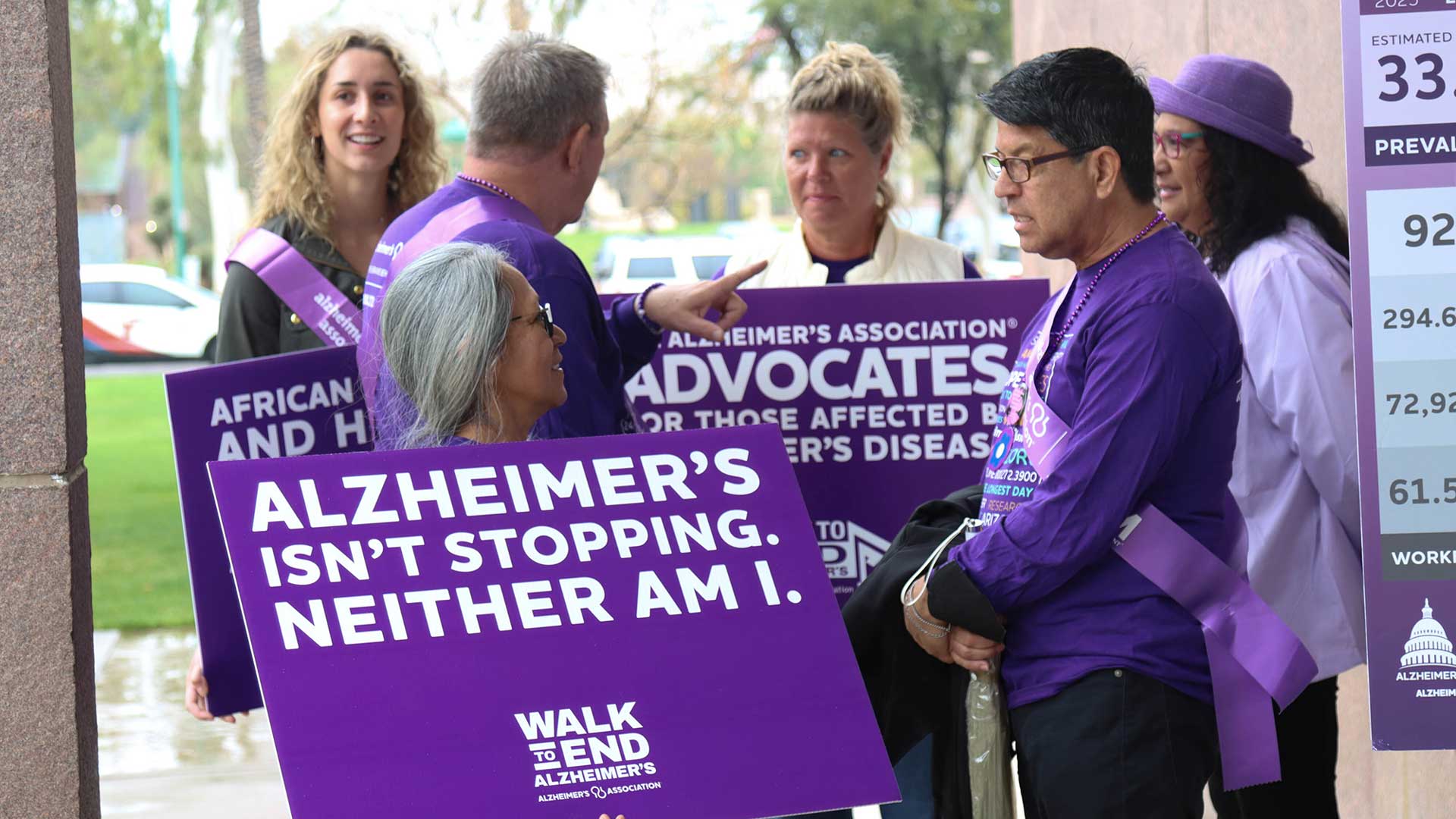 Supporters of bills to battle dementia spoke of the need for a statewide effort to battle dementia at a news conference at the state Capitol.
Supporters of bills to battle dementia spoke of the need for a statewide effort to battle dementia at a news conference at the state Capitol.
State legislators are pushing a bill to build a state dementia plan and put up to $500,000 toward new jobs focused on Alzheimer’s disease, a common type of dementia that is rising especially fast in Arizona.
“We call it the silver tsunami,” state Rep. Jennifer Longdon, D-Phoenix, said Wednesday at a news conference at the state Capitol. “The number of folks who are projected to experience Alzheimer’s in the coming years is going to be significant.”
Another legislator, Sen. T.J. Shope, R-Coolidge, sponsored SB 1220, which would require the Arizona Department of Health Services to build a dementia plan for policies and programs to fight Alzheimer’s and other forms of dementia, according to advocates. That would include hiring two dementia services coordinators to collaborate across state agencies. Longdon is sponsoring a similar bill in the House.
The Alzheimer’s Association, in a 2023 report, said Arizona’s rate of diagnosis of a disease that destroys memories and leads to cognitive decline is expected to jump more than 33% over five years, ending in 2025. That affects patients and their loved ones, who usually become caregivers. That comes at a cost – an estimated 18 billion hours of unpaid care, the association says.
Leonard Chayrez, who has Alzheimer’s, and his partner and caregiver Mark Garrity, said the diagnosis was delayed.
“Over three years, until finally they decided let’s start some testing on you,” Chayrez said.
Marisa Menchola, a Tucson dementia specialist, said diagnosing symptoms early is key.
“We cannot reduce this burden without earlier diagnoses and there is no early diagnosis without public education and awareness,” Menchola said.
Dementia upends families.
“Nothing prepares you for the day that your own mother looks you in your eye and doesn’t know who you are,” said Merry Grace, who cried at Wednesday’s news conference as she spoke of her mother, who died five years ago. Now, Grace takes care of her father, who also has dementia.
Shope, who represents the Southeast Valley and parts of Tucson, said his great-grandmother was diagnosed with Alzheimer’s. As a child he watched his relatives take on caregiving responsibilities.
“You’re watching the sacrifices that your own family has to make because my grandma, my aunt, and my mom did not want to have to send our great grandma away to a care facility,” Shope said.
Menchola said the battle against Alzheimer’s needs help from people from a variety of backgrounds.
“Our caregivers are doing their part. Our healthcare workers and our scientists are doing their part. We need our partners in the Legislature to do their part also,” Menchola said.
Similar bills, including one to raise awareness of the disease, are moving through the Senate and the House. Garrity and other advocates say if the bills pass, it also will help to reduce misunderstandings about dementia.
“There is kind of a stigma that you don’t talk about it – something that happens to old people,” said Garrity. But it doesn’t, he said.
His partner, Chayrez, is 57.

By submitting your comments, you hereby give AZPM the right to post your comments and potentially use them in any other form of media operated by this institution.